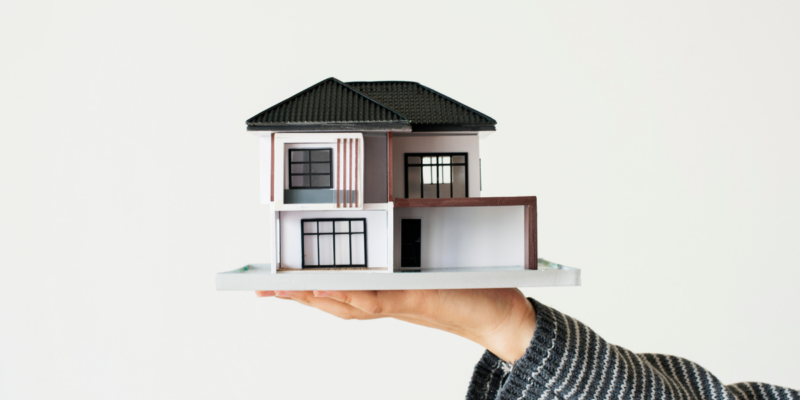
House buying checklist should include careful evaluation of location, budget, legal verification, construction quality, and resale potential. A well-structured one can ensure that your investment is secure, informed, and financially sound.
Investing in a home is a significant milestone, and making the right choice gives long-term satisfaction. With many options available, having a clear house buying checklist can help you stay focused on what truly matters. From location to legal verification, each aspect plays a key role in securing a home that meets your expectations.
Whether you are a first-time buyer or looking to upgrade, this essential home purchase guide will help you make a smart investment. In this blog, you can understand the important things to check before buying a house – helping you take an informed decision.
Table of Contents
Importance of Having a House Buying Checklist
A home purchase guide helps you stay organised and ensures that you do not miss any of the key things to check before buying a house – such as budget, legal approvals, and property details. It simplifies comparisons, streamlines document verification, and evaluates resale potential.
By outlining priorities and financial considerations, it saves time, prevents unexpected expenses, and keeps you within budget. With a clear plan in place, you can take a confident, well-informed homebuying decision while avoiding stress and uncertainty.
5 Essential Checklist Points to Consider Before Buying Your Dream Home
From choosing the right location to verifying legal documents and assessing construction quality, every factor plays a key role in securing a home that meets your present and future needs. This house buying checklist outlines the most important things to check before buying a house, that can lead to a smooth and confident homebuying journey.
-
Location and Neighbourhood
Choosing the right location ensures daily convenience, better lifestyle, and strong investment potential. Before finalising your home, evaluate these key factors to take an informed decision.
Proximity to Workplaces, Schools, Hospitals, and Transport Hubs
A well-connected location saves time and enhances your work-life balance. Easy access to workplaces reduces long commutes, while reputed schools nearby offer high-quality education for your children. Proximity to hospitals provides peace of mind in emergencies, and well-developed transport hubs make daily travel effortless.
Future Development Plans and Appreciation Potential
An area with upcoming infrastructure projects, commercial hubs, and metro expansions holds strong appreciation potential. Invest in a location with planned growth to ensure that your property’s value increases over time, offering better returns in the future.
Safety, Social Infrastructure, and Lifestyle Suitability
A secure and well-developed neighbourhood enhances your living experience. Among the things to check before buying a house, consider gated communities, security features, and vibrant environment. Social infrastructure such as parks, retail centres, fitness facilities, and entertainment zones contribute to a comfortable and fulfilling lifestyle.
-
Budget and Financing Options
Plan your finances carefully for a smooth homebuying experience and less financial strain. A comprehensive house buying checklist allows you to finalise your budget, compare loan options, and account for hidden costs.
Assess Your Budget, Including Down Payment and Loan Eligibility
Before shortlisting properties, determine how much your final budget should be. Consider your savings, monthly income, and loan eligibility to set a realistic budget. Factor in the down payment requirement, as most lenders expect you to contribute a percentage of the property’s value upfront – usually this ranges between 10% and 20%. A clear budget helps you narrow down choices and avoid overspending.
Compare Home Loan Options and Interest Rates
This is one of the most important things to check before buying a house. Different lenders offer varying home loan terms, interest rates, and repayment options. Compare the offers of banks and financial institutions, to find the most suitable loan with favourable interest rates and flexible repayment periods. Opting for the right loan structure can reduce your financial burden and help you manage monthly EMIs efficiently.
Hidden Costs: Registration Fees, Maintenance, Property Taxes
Beyond the property price, additional costs can impact your overall investment. Stamp duty, registration fees, and legal charges add to the initial expense, while recurring costs such as property tax, maintenance fees, and utility charges affect long-term affordability. Account for these hidden expenses, to avoid any surprises after the purchase.
-
Property Title and Legal Verification
Overlooking property documents can lead to disputes, financial loss, or delayed possession. A good home purchase guide stresses the importance of conducting thorough legal verification to safeguard your investment.
Check Ownership Documents and Verify Title Deeds
Confirm that the seller has clear ownership of the property. Verify title deeds to check if there are any disputes or claims. Analyse previous ownership records and check if the property is free from legal complications, before proceeding with the purchase.
Approvals from Municipal Authorities and Compliance with RERA
Ensure the property has approvals from the municipal corporation, town planning department, and water and electricity boards. For under-construction properties, check if the project is registered under RERA (Real Estate Regulatory Authority) – for transparency, adherence to deadlines, and protection against fraudulent dealings.
Encumbrance Certificate and Legal Due Diligence
EC confirms that the property is free from legal dues or pending loans. Legal due diligence – including checking sale agreements, tax receipts, and occupancy certificates – prevents future legal hassles. You can also consult a legal expert to further validate the property’s authenticity.
-
Construction Quality and Developer Reputation
These directly impact the durability and long-term value of your home. A well-constructed property has high safety, low maintenance costs, and better resale potential. Include these factors in your house buying checklist to verify them thoroughly.
Evaluate Material Quality, Structural Integrity, and Finishing
Assess the quality of materials used in the foundation, walls, flooring, and fittings. Poor construction can lead to structural weaknesses, water seepage, and frequent repairs. Check for sturdy doors, premium flooring, and high-quality bathroom & kitchen fittings – to ensure that your home is built to last.
Research the Developer’s Track Record and Past Projects
A developer’s reputation speaks volumes about construction quality and project delivery. Look into their past projects, adherence to deadlines, and overall market credibility. A developer with a strong track record will deliver a well-built home within the promised timeline.
Check Reviews and Visit Completed Properties
Customer reviews and testimonials provide insights into the developer’s reliability and post-handover services. Visit completed projects to inspect construction quality firsthand, and interact with residents about their experiences. This helps you take an informed decision before finalising your home.
-
Resale and Rental Potential
This home purchase guide emphasises evaluation of resale and rental potential, for your investment to remain financially rewarding in the long run. A property with strong demand and appreciation prospects provides better returns, whether you plan to sell or rent it out in the future.
Market Trends and Potential Appreciation Over Time
Understand market trends to choose a property with good appreciation potential. Locations with growing infrastructure, commercial hubs, and planned developments see higher property value growth. Investing in such areas ensures that your home remains a profitable asset.
Demand for Rental Properties in the Area
If you plan to rent out your property, assess the demand in the area. Proximity to offices, educational institutions, and transport hubs makes a location attractive to tenants. High rental demand leads to steady income and better ROI.
Exit Strategy: Ease of Selling the Property in the Future
The resale potential of a property depends on factors such as location, construction quality, and market demand. Homes in prime areas with good connectivity and modern amenities in gated communities sell faster. If your property is easy to liquidate, you gain the financial flexibility to sell it whenever needed.
Conclusion
A thoughtful and systematic approach is essential while investing in a home. A well-structured house buying checklist helps you take an informed decision – ensuring financial security, legal clarity, and hassle-free maintenance.
By assessing key factors before making a purchase, you can invest in a home that offers both comfort and lasting value. Explore your luxury dream home in your preferred city, by visiting the official website of SOBHA or calling 08046464500.
FAQs
1. What are the most important things to check before buying a house?
The most important things to check before buying a house are location, budget, legal verification, construction quality, and resale potential. A well-structured house buying checklist ensures that you take an informed decision that aligns with your needs and financial goals.
2. How do I choose the right location for my home?
You can choose the right location for your home by ensuring proximity to workplaces, schools, colleges, hospitals, and transport hubs for daily convenience. Additionally, consider future infrastructure developments, area safety, and amenities in the gated community – for long-term value and comfort.
3. What legal documents should I verify before purchasing a property?
Legal documents that you should verify before purchasing a property are RERA approval, ownership documents, title deeds, and Encumbrance Certificate to check if it is free from disputes or loans. A home purchase guide also advises checking approvals from municipal authorities for compliance and security.
4. How can I determine my budget and financing options for buying a house?
You can determine your budget and financing options for buying a house, by assessing your income, expenses, savings, loan eligibility, and down payment capacity. Compare home loan options and interest rates from different lenders, to choose the most suitable financing plan.
5. What hidden costs should I be aware of while purchasing a home?
The hidden costs you should be aware of while purchasing a home are stamp duty, registration fees, maintenance charges, property tax, interior decor, and utility costs. Factoring in these expenses will help plan your finances effectively.
6. How do I check the developer’s reputation and track record?
You can check the developer's reputation and track record by researching their past projects, completion timelines, and market credibility. A home purchase guide recommends checking customer reviews and visiting completed properties to gain insights into construction quality and reliability.
7. What are the key aspects to evaluate in construction quality?
The key aspects to evaluate in construction quality include assessing the materials used, structural integrity, and finishing details like flooring, doors, and fittings.
8. How does RERA approval impact my home purchase?
RERA approval positively impacts your home purchase by ensuring transparency, timely delivery, and legal compliance. It can protect homebuyers from fraud, and provides a structured grievance redressal system if any issues arise.
9. What factors influence a property’s resale and rental potential?
Factors that influence a property's resale and rental potential include location, connectivity, future growth prospects, and demand for rental housing. Apart from other things to check before buying a house, you should evaluate these factors for long-term financial returns and investment security.
10. Is it better to buy a ready-to-move-in home or one under construction?
You can buy a ready-to-move-in home to eliminate waiting time and uncertainty, or an under-construction property to acquire it at lower price with excellent appreciation potential. The choice depends on your financial flexibility and urgency.







